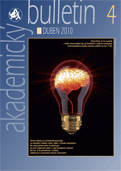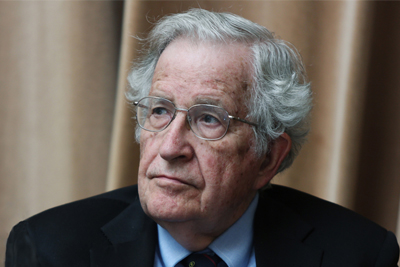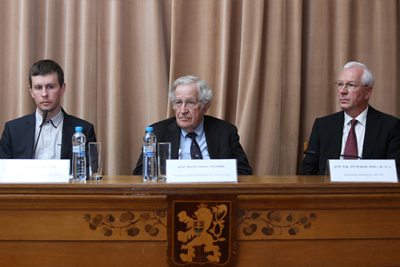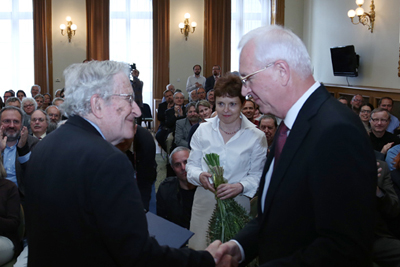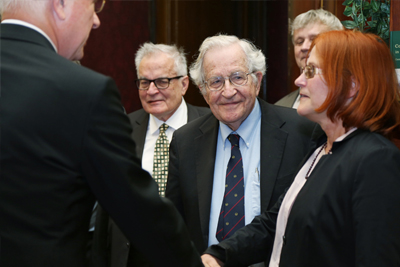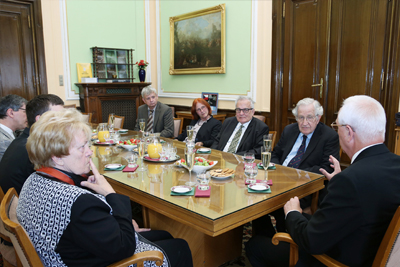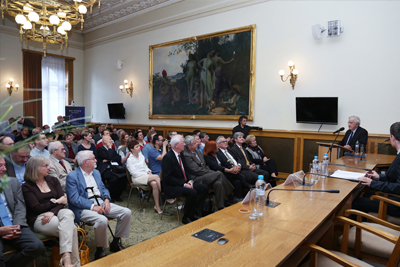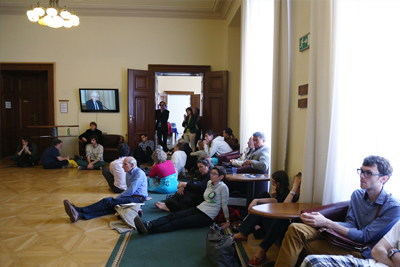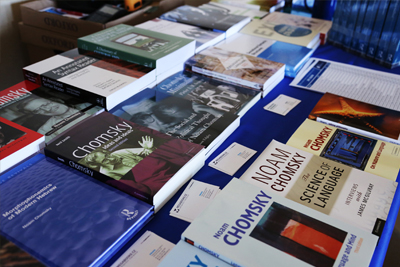public non-university research institution, which comprises a system of scientific institutes. It conducts its activities in accord with Act No. 283/1992 Coll., On the Academy of Sciences of the Czech Republic (ASCR), and other legal regulations. Research conducted by the ASCR endeavours to advance knowledge on an international scale while however respecting the current needs of Czech society. The supreme autonomous body of the ASCR is the Academy Assembly. The executive body of the ASCR is the Academy Council with the President of the ASCR at its head. Its permanent advisory body is the Council for Sciences, which deals with the scientific policy of the ASCR. These all-academic bodies are always elected for four-year periods.
Prof. Noam Chomsky appeared at the Academy of Sciences of the CR
Prof. Noam Chomsky appeared at the Academy of Sciences of the CR
2 Jun 2014

One of the most important scientists of today, Professor Avram Noam Chomsky from Massachusetts Institute of Technology appeared on Monday, 2 June 2014 at the headquarters of the Academy of Sciences of the CR with a lecture “What Can We Understand?” On this occasion, he received from the hands of the President of the ASCR Prof. Jiří Drahoš the honorary medal “De scientia et humanitate optime meritis”. Over the next few days, Prof. Chomsky will attend a linguistics conference organized by the Faculty of Arts of Palacký University in Olomouc and a public debate on current social trends in the Metropol Cinema in Olomouc.
Ultraviolet light enables to find white-nose syndrome in bats
4 Jun 2014
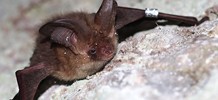
The Protest Movements in the Contemporary Middle East
2 Jun 2014
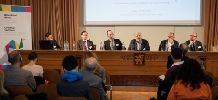
Quantifying the impacts of alien species: towards an IUCN Black List
12 May 2014
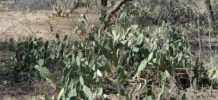
One of the major transformations of the planet from human activities is the wholesale redistribution of species, through the deliberate or accidental translocation of their populations to areas outside their native range. These “alien” species have in many cases caused substantial deleterious impacts to the recipient environment (e.g. extinctions of native populations and species, the disruption of soil nutrient and water cycling, and natural disturbance regimes). Preventing and mitigating such impacts is a major drain on limited conservation resources.
The FUNBIO project – studying materials on the boundary of life
19 May 2014
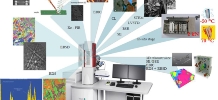
New findings on acute myeloid leukemia from the Institute of Molecular Genetics AS CR
12 May 2014
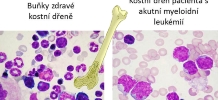
Physics helps economy: a new monograph on Econophysics from the Institute of Physics, AS CR
12 Mar 2014

Importance and impact of methods and techniques developed for studying physical problems has outreached the realm of natural sciences. Methods of quantum physics and statistical mechanics find more and more applications in biology, economy, informatics, or sociology. Physics has become one of the most important components of a number of new interdisciplinary research fields. Econophysics utilises methods of statistical mechanics and theory of phase transitions to model and understand processes in economy and financial markets.
Brain Awareness Week
21 Feb 2014
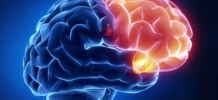
Every March, the European Dana Alliance for the Brain (EDAB) coordinates Brain Awareness Week, when hundreds of public events in dozens of countries celebrate progress in brain research and inform the general public about their overall results. In the Czech Republic, Brain Awareness Week activities are organized by the Institute of Experimental Medicine ASCR and by Czech Society of Neuroscience, by the Centre of Neuroscience and by the Centre of Administration and Operations ASCR.
Relativity shakes a magnet
4 Mar 2014
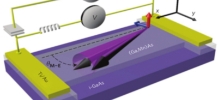
Researchers from Institute of Physics AS CR demonstrate a new principle for magnetic recording
Current technologies for writing, storing, and reading information are either charge-based or spin-based. Semiconductor flash or random access memories are prime examples among the large variety of charge-based devices. They utilize the possibility offered by semiconductors to easily electrically manipulate and detect their electronic charge states representing the “zeros” and “ones”. The downside is that weak perturbations such as impurities, temperature change, or radiation can lead to uncontrolled charge redistributions and, as a consequence, to data loss.
Magnetic inside but not on outside
3 Feb 2014
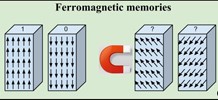
A new theory explaining the origin of hydrocarbon molecules in interstellar space
22 Jan 2014
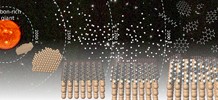
New Nikon Centre of Excellence in Super Resolution Microscopy
22 Jan 2014
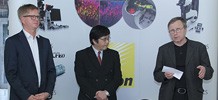
20 Years of the Academy of Sciences of the Czech Republic
4 Dec 2013
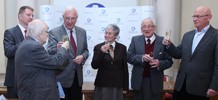
On the occasion of the 20th anniversary of the creation of the Academy of Sciences of the Czech Republic, there was a press conference in the Prague headquarters of the most important Czech scientific institution. The history of the Academy of Sciences of the CR with an emphasis its essential role in society, breakthrough moments and main developmental stages was first raised by its current president, Prof. Jiří Drahoš. It was then commemorated by his three predecessors in the leading post of the ASCR – Prof. Rudolf Zahradník, Prof. Helena Illnerová and Prof. Václav Pačes.


